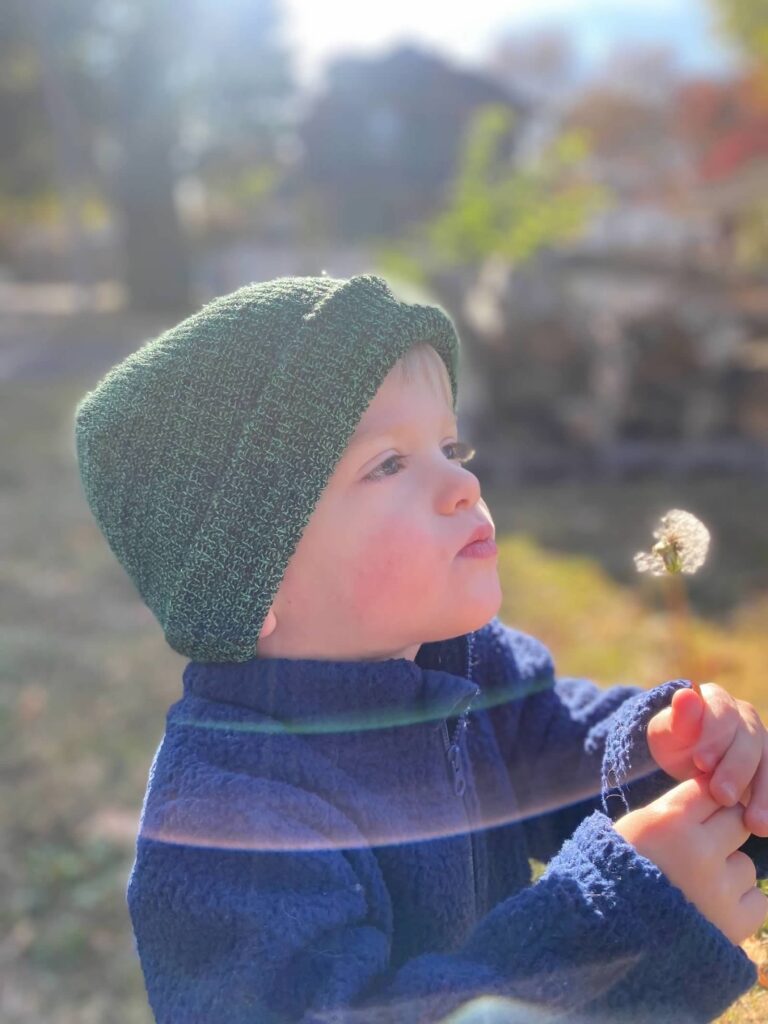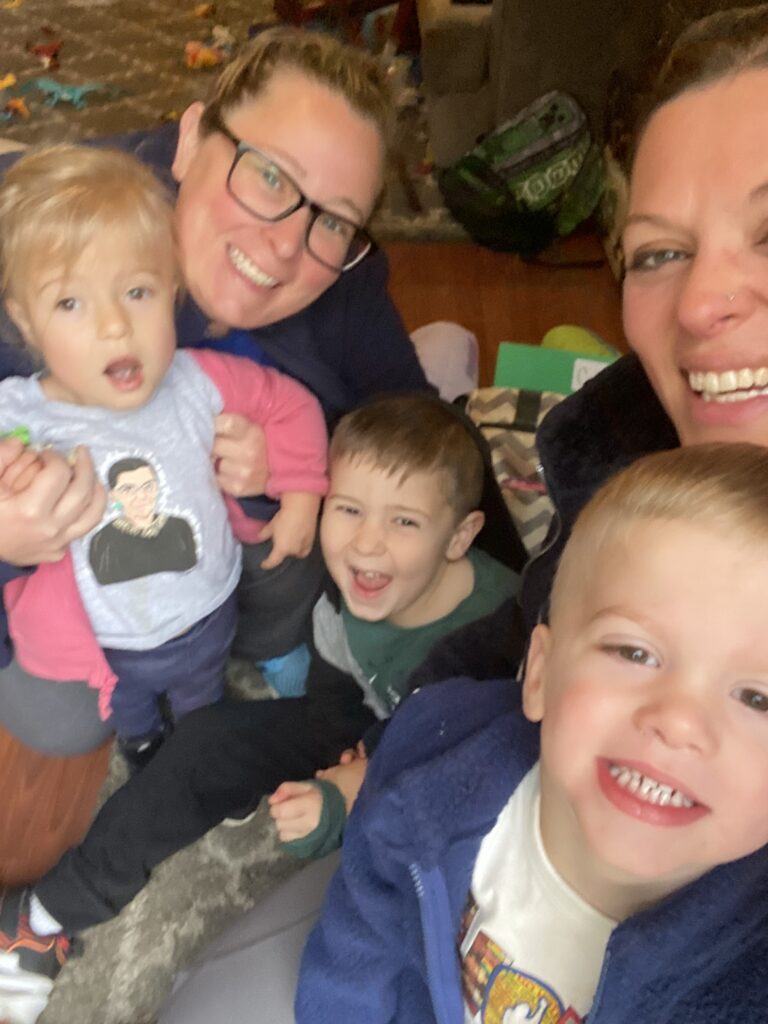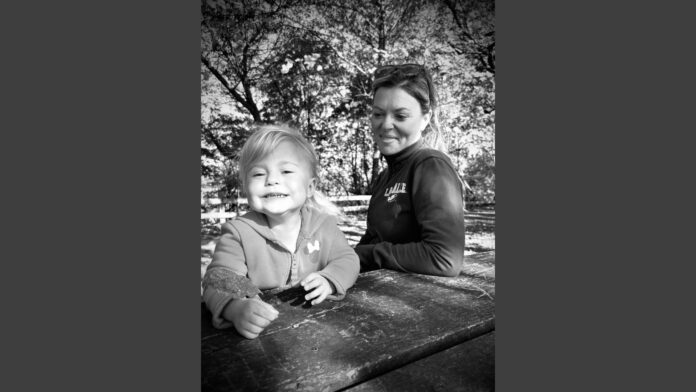I was the editor of PGN in November 2016, when Donald Trump was elected president. I remember how hard it was to hold back the tears on my way into work: as I walked to the train, as I wrote angry Facebook posts on the ride, as I made my way from Jefferson Station down to the offices on South Street, passing commuters who looked just as weary and puffy-eyed as I was.
This time around? I cried just as much — but for somewhat different reasons. Eight years ago, I was shocked that the bigotry that got Trump elected ran so deep in this country, suggesting the privilege and naivete from which I was operating. Now, the tears weren’t out of shock for where we are today, but rather where we will be as my kids continue to grow up. That Trump got elected again is enough to instill fear that we may never make this country what our kids deserve it to be.
I, like many Americans, felt hopeless after the election. But, similar to many hard points in my and Ashlee’s lives, we’re trying to look to our kids for hope. As much as we have to teach them, they often are the ones with the real lessons.
Keep moving
I went to bed after midnight the night of the election, a bottle of wine deep and sick to my stomach, waking at 5. I wanted nothing more than to bury my face in my pillow and cry about the state and future of our nation — but, kids.
All three were up almost at 6 on the dot, and Ashlee was headed off to work. We hugged as she left, which set off a fresh wave of tears. “Don’t let them see,” she murmured. So, off to the kitchen for unpackaging Pop-Tarts, filling milks, packing lunch. I had to keep moving because, as parents, we often don’t have a choice.
Nor do we as Americans. The meaning behind the results of this election is mind-blowing, can stop you in your tracks. But it can’t. There’s too much work to do. Toasting bread for my kids that morning didn’t exactly serve a higher purpose of taking down patriarchy, but it kept me anchored, focused on meeting someone’s need and feeding a purpose that matters most to me.
Purpose drives action. Action drives resilience
In the beginning of the twins’ NICU experience, we felt a level of anxiety-riddled despair we had never experienced. We had no idea how long they were going to be there, what complications they would face, if they would even survive. But they kept staying strong day after day, and we had to stay strong for them. The more we did it — even though we had zero idea what we were doing in the moment — the more we learned how.
We figured out how to compartmentalize when we had to, we fought fights we didn’t know we could, we challenged ourselves in ways we didn’t know we needed to. Because we were fighting for something that was that important.

During that time, people would comment about how they didn’t know how Ashlee and I were holding it all together, and I often thought, I wish we didn’t have to. I wish August and Avery were born under different circumstances and things weren’t so hard — but they were, so there was no choice but to do what needed to be done. We weren’t doing anything extraordinary, just what we needed to do as parents.
Fast-forward three years. The day after the election, like many Americans, I wasn’t quite sure how to process what I was feeling—the anger, disbelief, anxiety. I cried in the car as soon as I got the twins to daycare. I ordered fried food. I took a sick day. I doomscrolled, then deleted X. That afternoon, I waited in the lobby at an appointment for Jackson, and my eyes lingered on a poster that emphasized the importance of controlling only what you can — and letting go of what you can’t.
I remembered the NICU, what we faced and how we got through it — by focusing on only one little task at a time, whatever we could control, to be there for our family, our purpose. I took that as a sign to get my butt in gear. That night, we connected with a lawyer who got the ball rolling for Ashlee to complete a second-parent adoption of the twins as well as to get our estate-planning documents, like a will and health-care power of attorney, for whatever may come.
The hard stuff shapes you
On Election Day, Jackson asked me, “What will happen if that bad guy wins?” What I wanted to say more than anything was “Your parents are probably going to lose their marriage rights. Millions of people are going to be disenfranchised. The country’s going to explode, and we’re probably all going to die.” But what I had to go with was “We’ll be OK. We did it before and we’ll do it again.”
Jackson is a kid who struggles with big tasks and big emotions; when something gets frustrating, he is quick to shut down. “You can do hard things,” we often have to tell him. But from this side of the recent election, doing the “hard things” to make this world a better place for these kids seems pretty overwhelming.
But if we take our own advice to Jackson, when we find the drive to face those challenges, that’s when we find out who we really are.
We’ve seen that in action with Avery. She spent a harrowing five months in the NICU, filled with more diagnoses and surgeries than we can count or remember. She’s had obstacle after obstacle placed in her path, and it shows. She’s all of 22 pounds and has a face like a little doll, but she is tough as nails. She pretty much runs our household with her attitude, confidence and downright defiance. And I believe it’s all because she has faced tremendous adversity.
I wanted more than anything for the glass ceiling to be broken for her. But maybe knowing that there’s so much work still to be done to advance women in leadership, to confront bias, to topple expectations that it will continue to give her the drive that cultivates the characteristics she needs to break that ceiling herself.
Leaning into community
One of the biggest issues I’ve struggled with since the election, and in debates I’ve seen on social media, is the idea that you can “agree to disagree” with Trump supporters and keep things humming along like normal in your circle. I’m on the side of this discussion that believes a vote for Trump in 2024 is a testament to one’s character — and I want to surround myself and my family with what we understand good character to be. While there may be something to the notion of bridging gaps and strengthening understanding through connection … I’m not feeling it just yet. I don’t think it’s on those of us whom I believe were on the right side of history with our votes to appease, placate or ease the minds of those who just voted to irreparably harm millions of people, including my children.

I’ve spent a lot of time since the election just being grateful for my family. Ashlee knows the fear it is to think our marriage rights are going to be taken away from us. Jackson doesn’t question whether having two moms is immoral. The twins wouldn’t care whether someone is Black or white, what their citizenship status is, whether they’re trans or cisgender — as long as they have snacks.
I think many people who’ve been affected by the election results are having a similar realization: Community is key. It’s where you find understanding, calm, and motivation. Community — finding it, building it, leading it — no matter how you define it, will, I think, be key to staying the course in the coming years.
We matter more now than ever
The week of the election, Jackson’s first-grade class held their own election, something to do with a character named Grace and a duck … I couldn’t follow. The day after the presidential election, Jackson was in the back seat after school and asked who won. I told him not our candidate and he replied that his pick at school also lost. “How did that make you feel?” I asked. “I wanted to run my head into the wall, I was so mad,” he said. “Dude, same.” I wanted to go on about future elections and getting involved and all the positivity parents are supposed to bring to disappointing situations, but I could tell that in that moment Jackson just needed to feel that upset, like I did.
Part of coping with these election results, for me, is being even more attuned to what my kids need — without losing sight of what I need to show them as a parent. It’s these small moments that are going to become the building blocks for the type of people, the type of voters and the type of Americans they will become in the future.
Someone in this generation of parents is raising a future president — if we don’t completely slide down the slippery slope toward dictatorship, that is. (I increasingly believe it’s me and Ashlee — if Avery’s tendency to march through our neighborhood yelling “Follow me, brothers! I’m the boss baby” to her brothers who are half a block ahead of her is any indication.)
This election showed me just how big of a job we as parents have. We are needed to model respect. To demonstrate empathy. To show them how to confront bullying. To help our kids think outside the box, and give them the tools to do so despite pressure to fall in line. To make them understand they can be whatever they want, love whomever they want, believe whatever they want. To teach them how to make decisions for the greater good and not just for their own self interest.
Right now, we will be swimming upstream, trying to parent with principles as our kids are inundated with contrarian messages: that power comes through bullying, division and selfishness, that injustice is just a given, that any one individual or group of individuals has more intrinsic value than another. This competing rhetoric has certainly always been there, but never as loudly, or as embraced by so many, as it is today. Which is why parents need to be louder: make our voices and our values heard — by and through our children.
